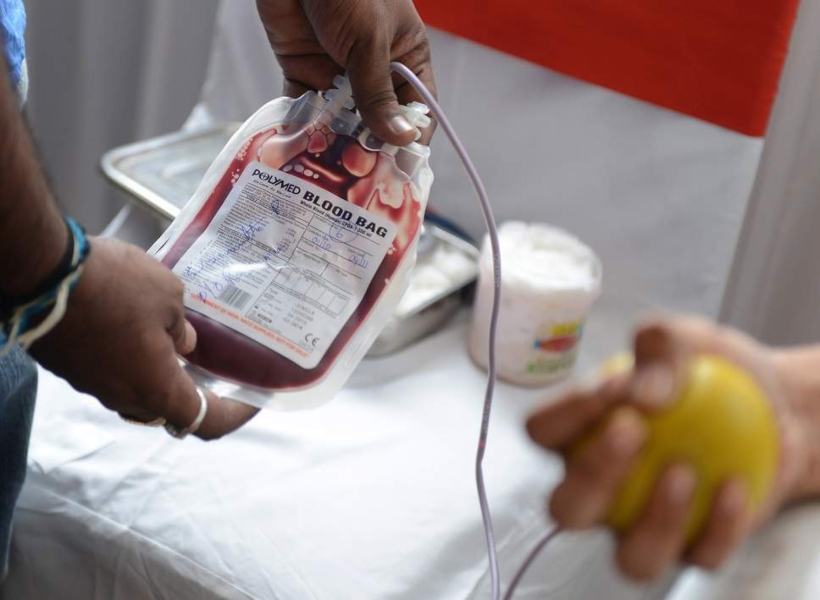Pregnant women can now rest easy that they could have access to safer blood compliments to measures implemented by National Blood Transfusion Service (NBTS) which is housed in the compound of the Georgetown Public Hospital Corporation.
The NBTS, the Guyana Standard has been informed, has introduced immuno-haematological testing and Hepatitis ‘B’ core antigen which will improve the quality of blood offered to patients.
According to NBTS Director, Dr Pedro Lewis, patients, particularly pregnant women, stand to be afforded uncontaminated blood because of the implemented measures.
He, however, explained that although the “risks of blood infection are always there”, the new tests have significantly lowered the chance of transmitting transfusion diseases.
The NBTS conducts a wide array of tests including those for HIV I and II (HIV1 is the most widespread worldwide and HIV2 is found mostly in western Africa); Human T-lymphotropic virus (HTLV1 and 2) infections associated with certain rare diseases of T lymphocytes (T-cells); Hepatitis ‘B’ and ‘C’; Chagas Disease; Malaria; Filaria, and Rapid Plasma Regain (RPR) used to test for the presence of Syphilis.
“These are serological testing and we now add immuno-haematological testing and now we have added Hepatitis ‘B’ core antigen which help make blood safer for pregnant woman,” Dr. Lewis shared with the media recently.
The immuno-haematological tests, he explained, take advantage of the body’s immune system. In order to fight germs or foreign substances, the immune system produces antibodies which are proteins that can bind to a specific germ or substance, just like a key fits into a specific keyhole. They “catch” the germs or substances, neutralise them and attract other immune cells.
Such tests used in laboratories are made by producing artificial antibodies that exactly “match” the substance or germ being tested. When these antibodies encounter a sample of blood, urine or stool, they bind to the matching substance or germ if found in the sample. This reaction shows that the germ or substance is present.
The new leap in expertise by the NBTS was made possible through ongoing networking among the Ministry of Public Health, the Pan American Health Organisation/World Health Organisation (PAHO/WHO), and the Guyana/Argentina collaboration, Dr Lewis said.













